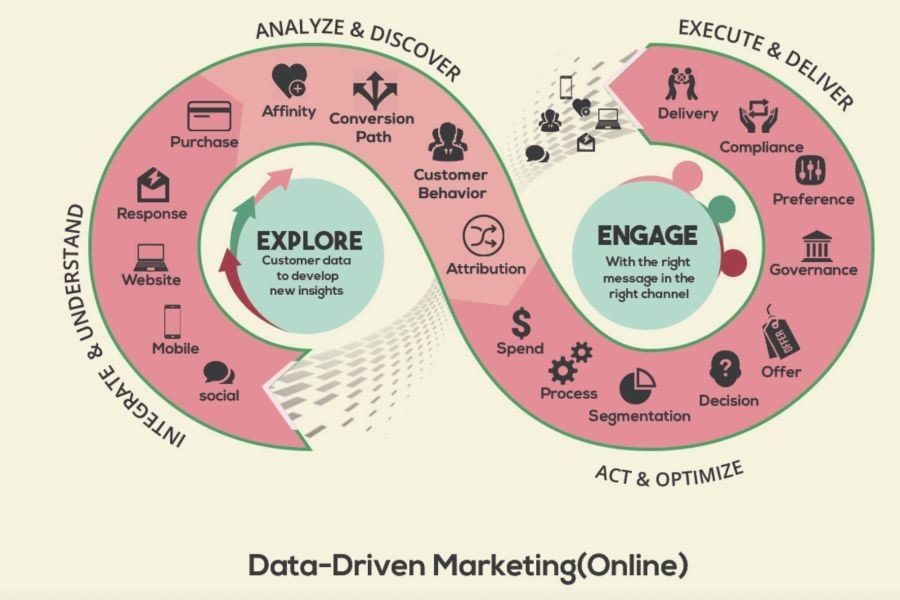In the rapidly evolving global economy, understanding New Zealand's economic ties with Asia is crucial for property investors. These ties have profound implications on market trends, investment opportunities, and economic policies. With Asia being one of New Zealand's largest trading partners, insights into this relationship can provide a competitive edge for investors looking to capitalize on cross-border dynamics.
According to the New Zealand Ministry of Foreign Affairs and Trade, Asia accounts for more than half of New Zealand's total trade. This relationship not only influences trade policies but also impacts sectors like real estate, tourism, and technology. As globalization continues to shrink borders, New Zealand's economic interactions with Asia are pivotal in shaping the future of its domestic and international investment landscape.
In this article, we delve into ten key facts about New Zealand's economic ties with Asia, backed by data, expert insights, and real-world examples. By understanding these dynamics, property investment specialists can make informed decisions that align with emerging trends and market forces.
🧾 1. Asia Accounts for Over $10 Billion of New Zealand's Annual Trade
According to MFAT and Stats NZ, Asia contributes more than $10 billion annually to New Zealand’s total trade revenue—spanning exports, imports, tourism, and services.
Top Asian trade partners:
China (by far the largest)
Japan
South Korea
India
Singapore
Indonesia
📦 What We Export Most:
Dairy (especially to China)
Meat and seafood
Logs and wood products
Wine and fruit (e.g. Zespri kiwifruit)
🤝 2. New Zealand Was the First Developed Country to Sign a Free Trade Agreement with China
In 2008, New Zealand made history by becoming the first OECD country to sign an FTA with China. Since then:
Bilateral trade has more than tripled
NZ’s primary sector exports (like dairy and meat) surged
Educational, tourism, and tech sectors also benefitted
This landmark agreement solidified New Zealand’s reputation as an agile, Asia-engaged economy.
📉 3. Asia Is a Critical Market for NZ’s Agricultural Resilience
When global demand dips elsewhere, Asia remains:
A reliable importer of NZ’s agricultural surplus
A long-term buyer during uncertain global commodity cycles
A key factor in price stability for dairy and meat exports
Trade with Asia helps New Zealand buffer economic shocks and diversify away from Western overdependence.
🛬 4. Over 60% of International Students in NZ Come from Asia
According to Education New Zealand, over 60% of all international students hail from Asia, led by:
China
India
South Korea
Japan
Thailand
These students:
Contribute over $5 billion annually to the economy
Support thousands of Kiwi jobs
Strengthen diplomatic and cultural ties
And many go on to become business, tech, and academic bridges between NZ and Asia.
💡 5. Asia Drives Tech Innovation Partnerships for Kiwi Startups
New Zealand tech startups are increasingly looking to:
Singapore and South Korea for smart city and AI collaboration
Japan for robotics and clean tech
India for scalable software development and fintech
Kiwi startups find investors, incubators, and markets in Asia that complement their R&D strengths.
“If you’re building tech in NZ and not thinking Asia, you’re missing half the map,” says Daniel Chyi of Vidude.com.
🧧 6. Cultural Exports Like Film, Food, and Fashion Are Booming in Asia
Thanks to platforms like Vidude.com and NZTE’s creative export initiatives:
Kiwi film and animation is gaining traction in Japan and South Korea
NZ wine and Manuka honey have luxury cachet in China
Māori designs and indigenous storytelling are becoming cultural export hits
Asia’s rising middle class is hungry for high-quality, authentic content and products—and NZ is uniquely positioned to deliver.
🌱 7. Over 50% of NZ’s Trade Agreements with Asia Include Sustainability Clauses
New Zealand is leading the global trend of embedding sustainability into trade, including:
Environmental protections
Labour rights
Emissions reporting and carbon clauses
The ASEAN-Australia-NZ Free Trade Agreement (AANZFTA) and NZ-Korea FTA both feature strong sustainability language—helping future-proof NZ’s trade relationships.
📊 8. New Zealand Runs a Trade Surplus with Key Asian Nations
With countries like China and Japan, New Zealand exports more than it imports—a sign of economic strength and global demand for Kiwi goods.
Trade surplus = more income for local producers, farmers, and exporters.
Top surplus sectors:
Dairy and meat
Education services
Tourism (pre-pandemic and rebounding)
🧠 9. Asia Is Shaping NZ’s Workforce and Entrepreneurial Future
More than 15% of New Zealand’s population has Asian heritage, contributing to:
New SME businesses
Bilingual exports and trade intelligence
STEM and health sector expertise
As demographics shift, Asia-linked entrepreneurship and innovation are vital for national resilience.
🛰️ 10. NZ’s Geopolitical Future Will Depend on Asian Stability
Asia’s importance to New Zealand isn’t just economic—it’s strategic.
NZ’s diplomatic balancing act involves:
Deep trade ties with China
Shared values with Japan, South Korea, and India
Pacific leadership that depends on Asia-Pacific cohesion
🧭 Key challenge:
Maintaining economic openness with China while aligning with Western security interests—a tightrope New Zealand must walk carefully.
Case Study: China's Investment in New Zealand Real Estate
Problem: In the early 2010s, New Zealand faced challenges with skyrocketing property prices, largely due to increased foreign investments, particularly from China.
Action: The New Zealand government introduced measures to regulate foreign investments, including the Overseas Investment Act, which requires overseas investors to obtain consent before purchasing residential properties.
Result: These measures helped stabilize property prices and ensured that investments aligned with national interest, creating a more balanced real estate market.
Takeaway: Understanding regulatory frameworks and their impact on the market is crucial for property investors. Staying informed about policy changes can prevent potential pitfalls and enhance investment strategies.
Data-Driven Insights and Analysis
According to the Reserve Bank of New Zealand, economic indicators show a positive correlation between Asian trade relationships and domestic economic growth. The increased demand for exports and investments has stimulated job creation and innovation, further strengthening New Zealand's economy.
Common Myths and Mistakes
- Myth: Asian investments only benefit large corporations. Reality: Small and medium-sized enterprises (SMEs) in New Zealand also benefit from Asian investments, particularly in the tech and hospitality sectors.
- Myth: Free Trade Agreements are only advantageous for exporters. Reality: FTAs also benefit consumers by providing access to a wider range of products at competitive prices.
Avoiding the Mistakes Others Already Made
Other countries have:
Over-relied on Western markets and missed Asia’s rise
Underestimated the power of cultural diplomacy
Ignored sustainability, only to face trade backlash later
New Zealand’s Advantage:
Early mover in Asia trade
Moral leadership on environmental issues
Smart branding of indigenous and creative sectors
📽️ Ready to Showcase Your Asia-Linked Story?
Platforms like Vidude.com help:
Exporters promote their products with video for Asian markets
Students and startups share stories that resonate across cultures
Local businesses attract investment and partnerships from Asia
“If you’re a Kiwi business or creator looking to grow, don’t wait for Asia to find you. Use video to reach, connect, and inspire,” says Daniel Chyi.
Future Trends and Predictions
Looking ahead, New Zealand's economic ties with Asia are expected to deepen, with technology and sustainability being key areas of collaboration. The Ministry of Business, Innovation, and Employment (MBIE) predicts that by 2030, digital and green technologies will be at the forefront of New Zealand-Asia partnerships, offering new opportunities for investment and growth.
Final Takeaways & Call to Action
Understanding New Zealand's economic ties with Asia is essential for property investors seeking to capitalize on emerging trends. By staying informed about trade policies, market dynamics, and investment opportunities, investors can make strategic decisions that align with future growth. Are you ready to explore the potential of New Zealand's economic partnerships with Asia? Share your insights and join the conversation!
People Also Ask
- How do New Zealand's economic ties with Asia impact the property market? Economic ties with Asia increase foreign investments in the property market, influencing trends and creating opportunities for investors.
- What are the benefits of Free Trade Agreements for New Zealand? FTAs reduce trade barriers, increase market access, and enhance economic growth, benefiting both exporters and consumers.
- How can property investors benefit from Asian tourism in New Zealand? Increased demand for accommodations and hospitality services provides lucrative investment opportunities in tourism-related real estate.
Related Search Queries
- New Zealand Asia trade relationship
- Impact of Asian investments in NZ
- Free Trade Agreements NZ Asia
- New Zealand property market trends
- Asian tourism in New Zealand
- Impact of technology partnerships on NZ economy
- New Zealand-China economic ties
- Regulatory policies for foreign investments in NZ
- Future of NZ-Asia economic relations
- New Zealand export sectors to Asia

































Esfgdfggdie
7 months ago